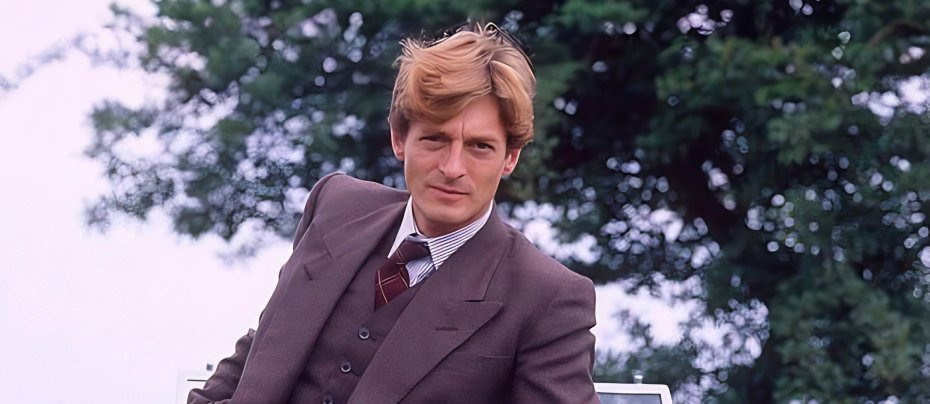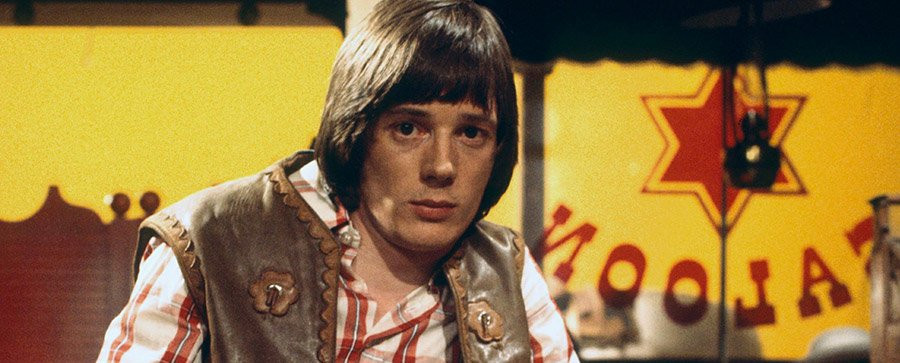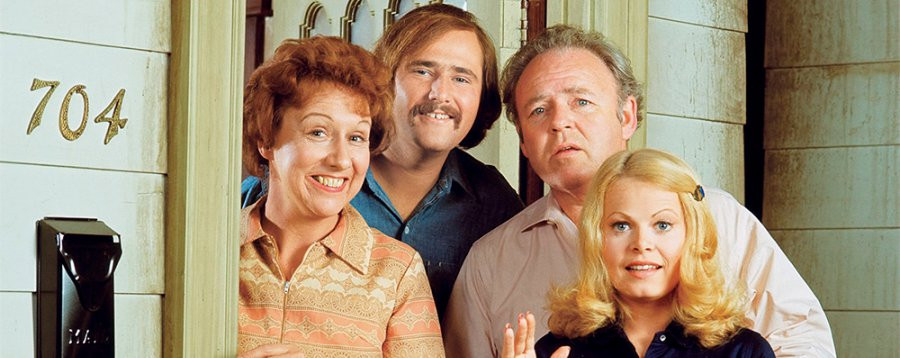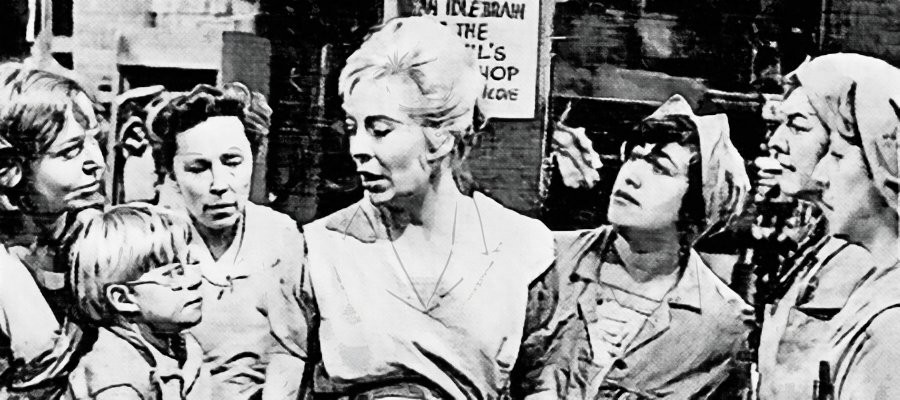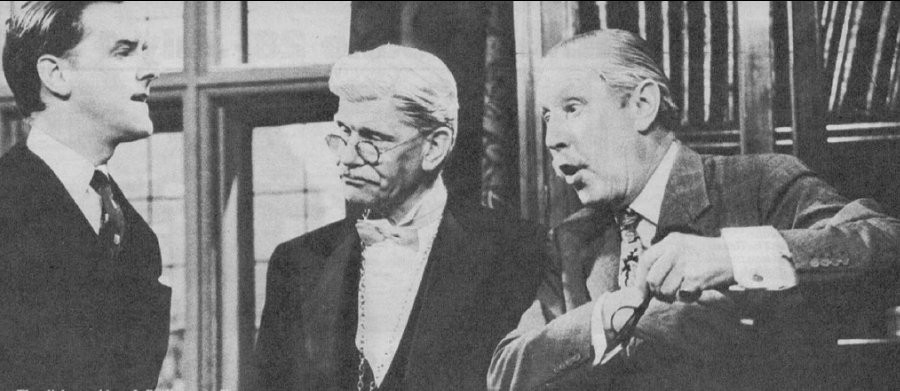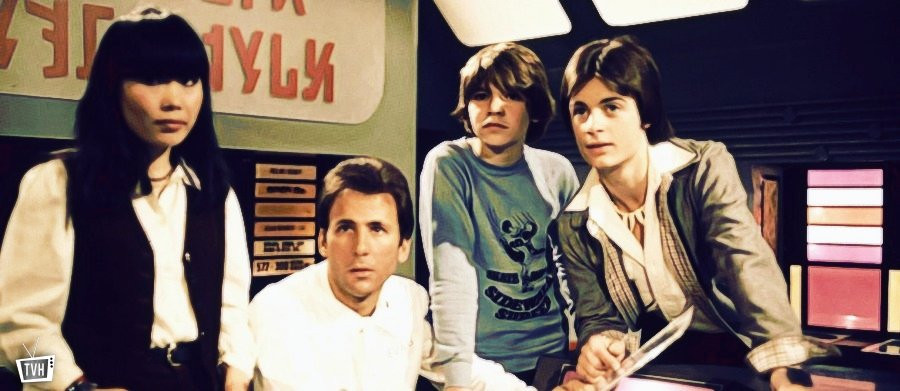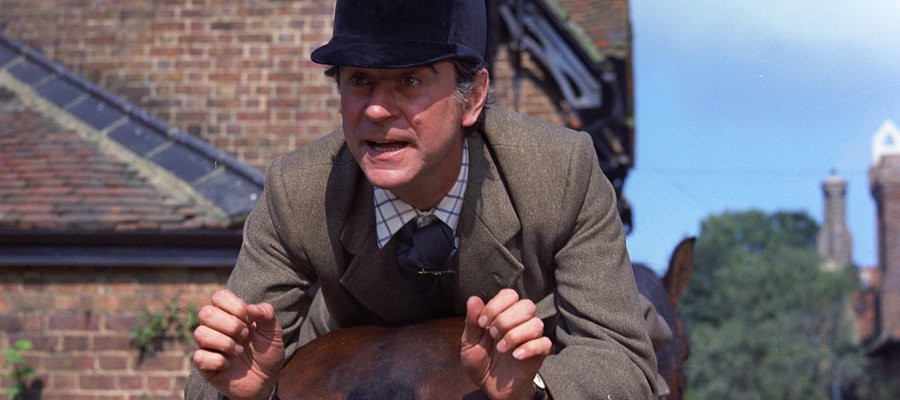
Bowler
1973 - United KingdomA curious blend of character comedy and social satire, Bowler aired in the early 1970s as a spin-off of The Fenn Street Gang—itself a sequel to Please Sir! — but functioned instead as a kind of prequel. At its heart is Stanley Bowler, a man with an eye for profit and a painful awareness of his own social inadequacy. Played with deadpan charm and underlying menace by George Baker, Bowler is an East End villain determined to rise above his roots and insert himself into polite society. Unfortunately for him, wealth can only take one so far when class, refinement, and a sense of decorum are sorely lacking.
Each episode follows Bowler’s latest misguided attempt to climb the social ladder, and it's in these desperate flounderings that the sitcom finds its humour. From setting up a gentlemen’s club (with all the subtlety of a dog in a ballroom), to dabbling in high culture, and even styling himself as a Scottish laird, Stanley Bowler’s ambitions are matched only by his astonishing inability to understand the world he is trying to enter. Whether misusing cutlery at a formal dinner or misinterpreting a Shakespearean play, Bowler stumbles with endearing futility from one social disaster to the next.
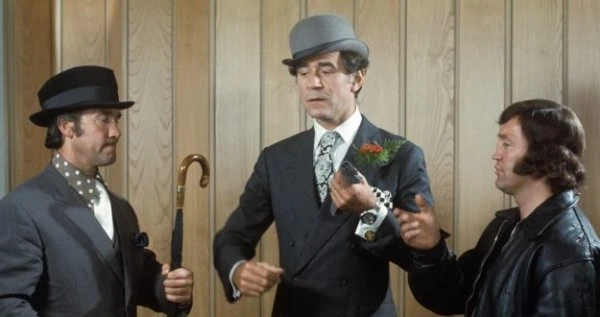
Much of the show’s appeal lies in its strong supporting cast. Renny Lister plays Doreen, Bowler’s long-suffering estranged wife, whose elegant exasperation highlights just how far Stanley has to go in his quest for polish. Fred Beauman delivers a subtle performance as Reg, Bowler’s loyal valet, who quietly observes his employer’s antics with a mixture of amusement and disbelief. Gretchen Franklin (who would later be known to millions as Ethel in EastEnders) is perfectly cast as Bowler’s no-nonsense cockney mother, forever reminding him where he comes from—whether he wants to hear it or not. A rotating roster of familiar guest stars, including Wendy Richard and Johnny Briggs, adds an extra layer of nostalgic charm for fans of British soap opera.
The writing, courtesy of sitcom stalwarts John Esmonde and Bob Larbey (who would later go on to create The Good Life), walks a fine line between mockery and affection. There is a real warmth in their depiction of Bowler—he is not a villain in the traditional sense, but rather a man hopelessly out of his depth, clinging to the belief that money can buy taste and breeding. While his schemes are laughable, there’s something faintly tragic about his inability to realise that what he seeks cannot be bought or faked.
Bowler may not have enjoyed the lasting success of its parent series or other Esmonde and Larbey creations, but it remains a hidden gem of 1970s British comedy. Its wry take on social mobility, class pretensions, and the eternal British obsession with knowing one’s place makes it a show well worth rediscovering. For those with a fondness for character-led sitcoms with a touch of pathos, Bowler is a rewarding watch.
Seen this show? How do you rate it?
Seen this show? How do you rate it?
Published on November 30th, 2018. Marc Saul.


